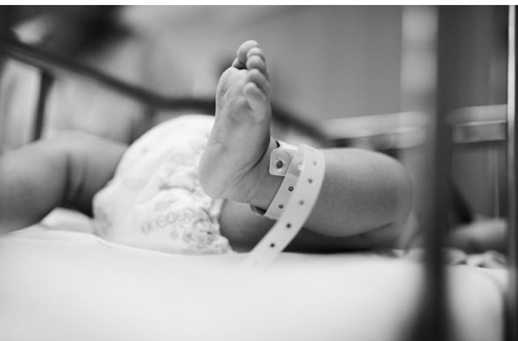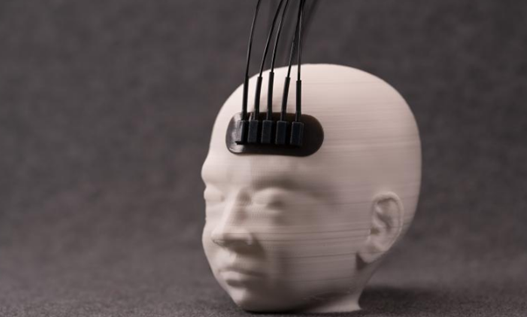Can These Pediatric Devices Make a Difference?
Check out the 12 finalists in the "Make Your Medical Device Pitch for Kids!” competition to be held live during the 7th Annual Pediatric Device Innovation Symposium hosted by Children’s National Health System.

Twelve finalists in the "Make Your Medical Device Pitch for Kids!” competition will be pitching their medical device innovations Sept 22 at the 7th Annual Pediatric Device Innovation Symposium hosted by Children’s National Health System. Sponsored by the National Capital Consortium for Pediatric Device Innovation (NCC-PDI), the competiton focuses on neonatal intensive care unit (NICU) innovations, a pediatric subspecialty that "FDA identifies as having a significant unmet need for medical devices," Children's National Health System pointed out in a news release. The symposium will be co-located with AdvaMed's MedTech Conference in Boston. Click next to read details about the 12 contenders.
“All of the companies that entered the competition are remarkable, but these finalists impressed us the most because of how their innovative medical devices solve a clinical challenge in the NICU and the feasibility of accelerating their commercialization process,” said Kolaleh Eskandanian, Ph.D., MBA, PMP, vice president and chief innovation officer at Children’s National and principal investigator of NCC-PDI, in the news release. “One in 10 babies is born prematurely, making NICU innovation an area where we can positively impact outcomes for a significant number of patients, so we want to support developers with funding, mentorship and regulatory guidance.”
NCC-PDI is one of five FDA-funded grant programs focused on serving such needs, and it is led by the Sheikh Zayed Institute for Pediatric Surgical Innovation at Children’s National Health System and the A. James Clark School of Engineering at the University of Maryland. Last year, NCC-PDI added new accelerators BioHealth Innovation and MedTech Innovator and design firm partner, Archimedic. The finalists are receiving pitch coaching through BioHealth Innovation and are competing for a chance to receive awards up to $25,000 and participate in the newly created “Pediatric Device Innovator Accelerator Program” led by MedTech Innovator, it was reported.
The 7th Annual Pediatric Device Innovation Symposium will feature a day-long conference track supporting the symposium theme, “Pediatric Device Clinical Trials: Forging a Better Path.” It will open with a keynote address from Melinda Richter, Global Head of Johnson & Johnson Innovation – JLABS, a network of life science incubators. In 2020, Johnson & Johnson Innovation and Children’s National will launch JLABS @ Washington, DC, at the new Children’s National Research & Innovation Campus. Their goal will be to "nurture and equip scientists and researchers to produce more novel solutions that currently do not exist for children," it was reported. After the keynote, Richter will participate in a fireside chat with Eskandanian.
Vasum Peiris, M.D., the chief medical officer for pediatrics and special populations at the FDA’s Center for Devices and Radiological Health, will close the symposium with an an update on advancements and gaps in pediatric device innovation.

A Near InfraRed Doppler Spectroscope (NIRDS) from 149 Medical Inc. noninvasively and continuously monitors blood flow in the neonatal brain. The technology enables early alerts and targeted therapy, according to the Children's National Health System release. The company is located in Boston.
Image courtesy of 149 Medical Inc.
The AlgometRx Rapid Drug Test from AlgometRx Inc. (Washington, DC) could be used to detect and monitor neonatal abstinence syndrome, it was reported. The company is also a participant in the FDA Innovation Challenge: Devices to Prevent and Treat Opioid Use Disorder.
Image courtesy of AlgometRx Inc.
NICUtrition from Astarte Medical was developed to support preterm infant feeding, nutrition, and gut health through the use of digital tools. The company is based in Yardley, PA.
Image courtesy of Astarte Medical
The BrainTemp System from BrainTemp Inc. is described as a non-invasive device developed to continuously monitor brain temperature in neonates. The company is located in Bryn Mawr, PA.
Image courtesy of BrainTemp Inc.
Digital health company Epitel Inc., based in Salt Lake City, UT, is working on brain health monitoring. Its initial focus is epilepsy, the company reported on its Web site, where it describes its product Epilog.
Image courtesy of Epitel Inc.
The Smart Needle with Sound Guidance from Lotus Ocean Biotech LLC (not shown) is described as a thin fiber optic sensor attached to the tip of a needle that can sense vessels and hear blood flow, it was reported. The company is located in Arlington, MA.
Image by Narupon Promvichai from Pixabay
LifeBubble from Novonate (South San Francisco) was designed to secure and protect the umbilical catheter insertion site for neonates in intensive care.
Image courtesy of Novonate
Neoneur will present its namesake product designed to measure neonatal development through feeding. The company shares the link between feeding and neural development on its Web site. The company is located in Pennington, NJ.
Image courtesy of Neoneur
Prapela Inc.'s Prapela SVS is a reusable hospital bassinet pad developed to reduce apneic and oxygen desaturation events in preterm newborns. (SVS stands for Stochastic Vibrotactile Stimulation, according to the company's Web site.) Prapela Inc. is located in Concord, MA.
Image from Prapela Inc.
The noninvasive and wireless Boppli Band from PyrAmes Inc.(Cupertino, CA) seeks to support risk- and pain-free continuous blood pressure monitoring for neonates.
Image courtesy of PyrAmes Inc.
Rhaeos Inc.will present FlowSense, a wearable device that enables noninvasive monitoring of ventricular shunt function in patients who have hydrocephalus.
Image courtesy of Rhaeos Inc.
Raydiant Oximetry Sensing Systems is a non-invasive technology developed to detect fetal distress during labor and delivery. The company, Raydiant Oximetry, is located in Mountain View, CA.
Image courtesy of Raydiant Oximetry
From:MDDI+Qmed









